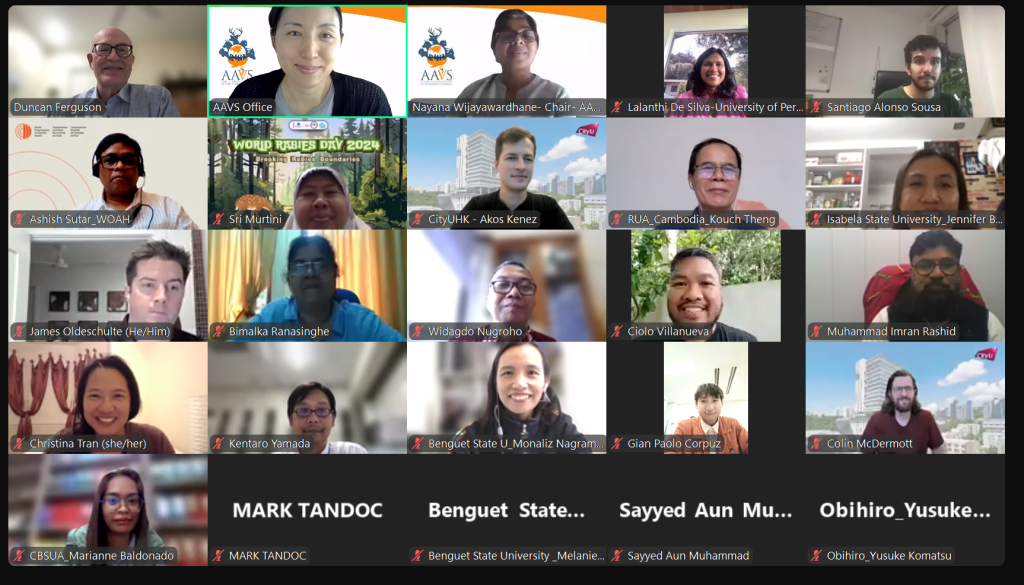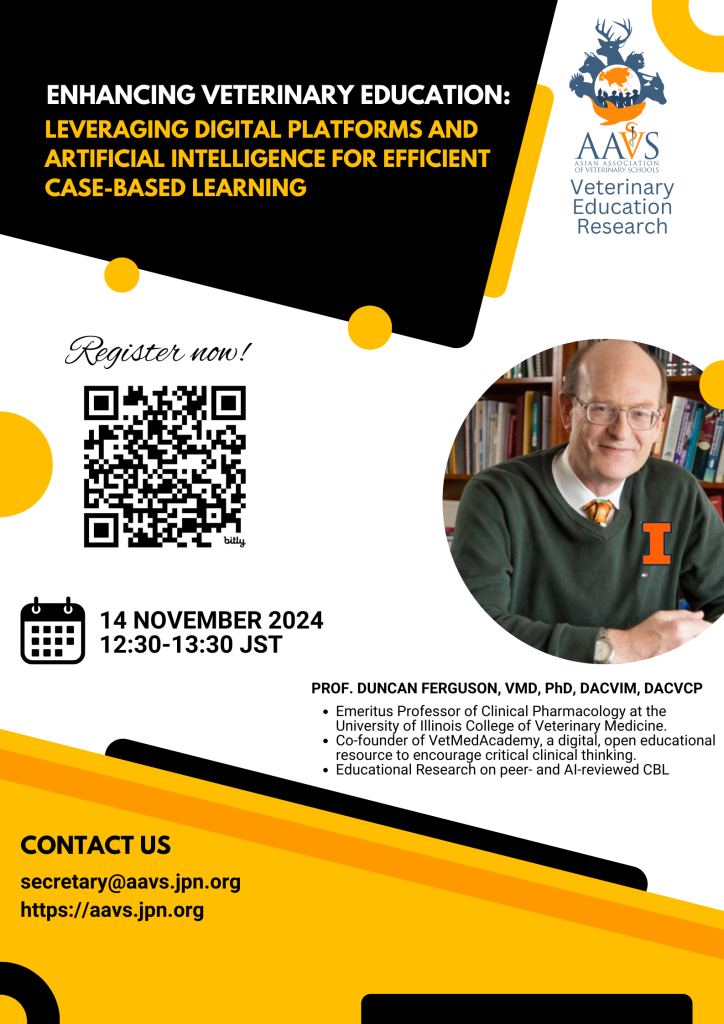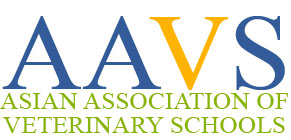14 November 2024
AAVS hosted a Zoom webinar titled “Enhancing Veterinary Education: Leveraging Digital Platforms and Artificial Intelligence for Efficient Case-Based Learning” on 14th November 2024, 12:30-13:30 JST.

The abstract and biography of Professor Duncan Ferguson is written below.
Abstract:
In veterinary education, case-based learning (CBL) has proven to be an impactful teaching approach that enables students to engage with real-world scenarios, fostering critical thinking and decision-making skills. However, the implementation of CBL can pose significant logistical challenges, particularly in terms of faculty workload and feedback responsiveness.
This presentation explores the potential for digital learning platforms, such as VetMedAcademy (Moodle LMS at https://vmacad.org) and CGScholar (https://cgscholar.com), to transform case-based pedagogy by streamlining content delivery and enhancing student engagement in veterinary programs. Furthermore, we will introduce the role of artificial intelligence, especially retrieval-augmented generation (RAG), in elevating the efficiency and effectiveness of CBL. Using topic-specific AI models, educators can provide timely, nuanced feedback on complex cases, tailoring guidance to individual learning needs while reducing the faculty’s administrative burden.
This session will showcase practical examples of integrating AI with CBL on digital platforms, demonstrating how educators can create a more dynamic, resource-efficient, and student centered learning environment. By combining the strengths of technology and pedagogy, we will highlight a path toward a sustainable, scalable model for veterinary education that addresses both faculty and student needs in a rapidly evolving digital era.
Duncan C. Ferguson, VMD, PhD, DACVIM, DACVCP Biography:
Education
AB – Dartmouth College
VMD – University of Pennsylvania
PhD (Pharmacology) – University of Pennsylvania
Diplomate, American College of Veterinary Internal Medicine (Small Animal) -residency,
University of Pennsylvania
Diplomate, American College of Veterinary Clinical Pharmacology
Duncan Ferguson is an Emeritus Professor of Clinical Pharmacology and past Department Head of Comparative Biosciences at the College of Veterinary Medicine of the University of Illinois College of Veterinary Medicine. He also served as the Program Director for the residency in Veterinary Clinical Pharmacology.
Prior to his time at the University of Illinois, he served on the veterinary faculty of Cornell University and the University of Georgia for a combined 24 years prior to taking the position of department head which he served from 2006-2016.
In 1991, he was a co-founder of Veterinary Information Network, Inc., the first distance learning and consulting online community for the veterinary profession. He coordinated its Continual Education division until 1999.
In 2016, he co-founded VetMedAcademy, (https://vetmedacademy.org), and has served as its President between 2020-present. VetMedAcademy is a charity whose mission is to create and curate open educational resources for veterinary medicine for international use by students and faculty, and to encourage critical clinical thinking in students. It focuses currently on pre-clinical and bridging topics such as physiology, pharmacology, and toxicology.
Dr. Ferguson’s basic and clinical research research interests are in thyroid physiology, pharmacology and toxicology, obesity and diabetes mellitus, and veterinary clinical pharmacology. His educational research interest is in techniques encouraging critical thinking and clinical problem-solving. Since 2014, he has collaborated actively with colleagues in the College of Education at the University of Illinois on the development of peer- and artificial-intelligence reviewed case-based writing exercises, and currently is
evaluating supplementing these efforts with AI models using the Merck Veterinary Manual
as a knowledge base. He received the 2021 Teaching Award from the American Academy
of Veterinary Pharmacology and Therapeutics.

